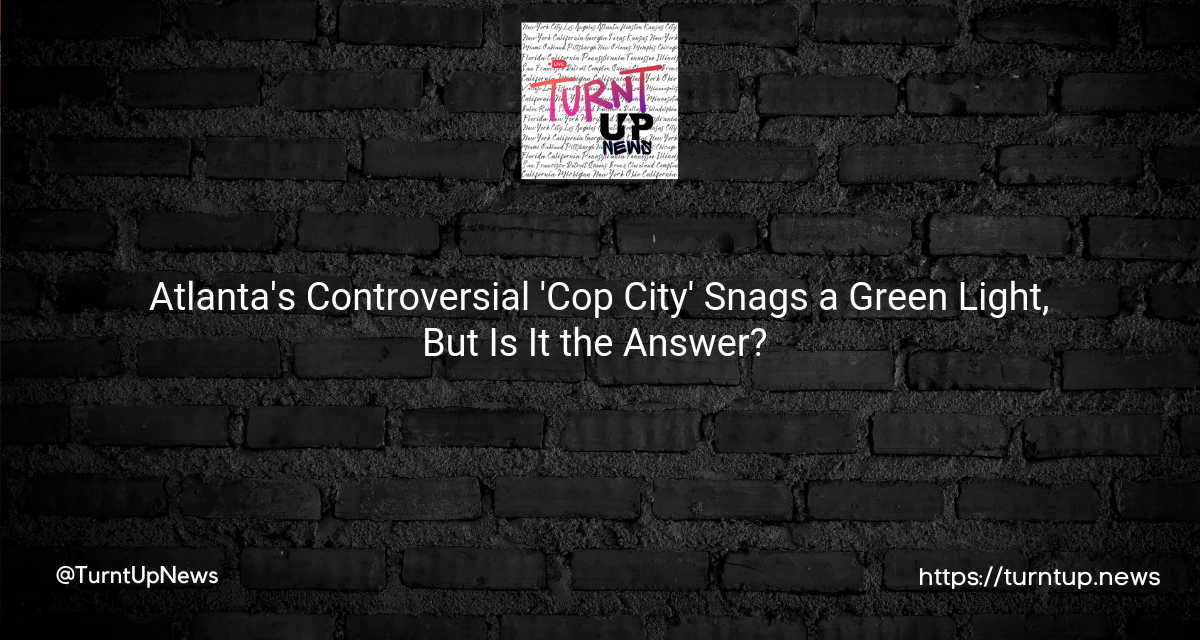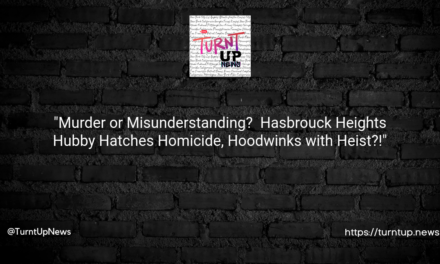💰👮 Atlanta’s Controversial ‘Cop City’ Snags a Green Light, But Is It the Answer? 🤔🌆
TL:DR; Despite fierce opposition and rallying cries of “Stop Cop City,” Atlanta’s City Council just dished out a cool $90 million to fund a police and firefighter training center in a poor, majority-Black neighborhood. Activists call it a misuse of funds and a step towards over-policing and environmental damage. Meanwhile, city officials insist the new center is crucial to improve training and recruitment. Now we’ve got a contentious issue on our hands and a big ol’ question hanging in the air: is ‘Cop City’ a step towards a safer city or a leap in the wrong direction? 🤷♂️
Picture this: it’s 5 am on a Tuesday, and Atlanta’s City Council members are looking like they just pulled an all-nighter on Red Bull (and not the fun kind, if you catch my drift 😉). Their mission? To vote on the whopping $90 million construction of a police and firefighter training center known not-so-affectionately as ‘Cop City’.
Mayor Andre Dickens, who’s pushing this project like a barista pushes espresso shots, must’ve been stoked at the 11-4 victory. He’s pretty jazzed about making Atlanta “a national model for police reform.” But the question remains: is this the kind of reform Atlantans want? 🤔
Not everyone’s thrilled about this outcome, particularly the “Stop Cop City” movement which sprang up like a pop-up shop selling vintage vinyl. Activists, including locals and comrades from across the country, have voiced serious concerns. And these aren’t just your garden variety complaints about potholes or parking tickets, no siree.
First off, there’s the whole ‘building a massive facility in a poor, majority-Black urban forest’ thing. According to Matthew Johnson, executive director of Beloved Community Ministries, it smells a little like environmental racism and police militarization. 🌳👮♂️
Is Atlanta ready to trade its trees for tear gas training? That’s a pretty tough sell, right? 😳
On the flip side, city officials have a different narrative. They claim the 85-acre campus is crucial to replace existing, not-so-stellar training facilities and combat recruitment difficulties. Especially considering the current national unrest about police brutality and racial injustice, they believe this could be a game-changer.
Meanwhile, outside City Hall, protesters had been camping out like it was Coachella, voicing concerns about over-policing and potential environmental damage. And it wasn’t just s’mores and sing-a-longs. Things got heated, with police reporting damage and attacks. 🔥🏕️
Not everyone, though, is riding the anti-Cop City wave. A handful of supporters say they trust Dickens’ judgment and gave the project a thumbs up.
But here’s where the math gets tricky: the City Council agreed to spend $31 million in public funds for the project, plus another $36 million for using the facility over the next 30 years. So, who’s going to foot the bill for the remaining $23 million? That’d be private donations to the Atlanta Police Foundation. But wasn’t the public’s initial obligation only supposed to be $31 million? Something smells fishy here… 🐠💸
As this unfolds, the Atlanta Solidarity Fund, which has supported arrested protesters, is under scrutiny, with three leaders accused of funding violent acts. The allegations prompted responses from Georgia’s Democratic senators, voicing concerns about over-policing and quelling dissent in a democracy





